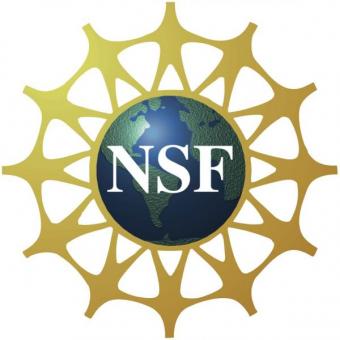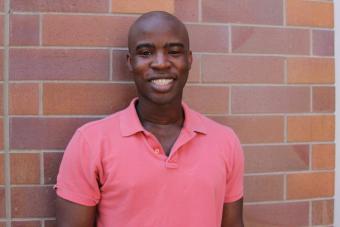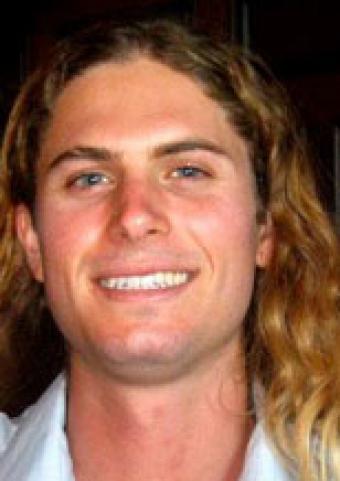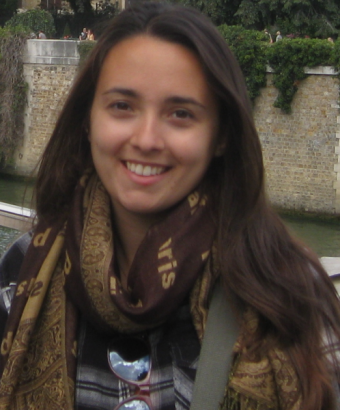Five Engineering Grad Students Earn NSF Research Fellowships
 The National Science Foundation has granted five UC Irvine engineering graduate students a research fellowship, and another three honorable mentions. The NSF Graduate Research Fellowship Program (GRFP) recognizes and supports outstanding graduate students in science, technology, engineering and mathematics disciplines.
The National Science Foundation has granted five UC Irvine engineering graduate students a research fellowship, and another three honorable mentions. The NSF Graduate Research Fellowship Program (GRFP) recognizes and supports outstanding graduate students in science, technology, engineering and mathematics disciplines.
As the oldest graduate fellowship of its kind, the GRFP has a long history of selecting recipients who achieve high levels of success in their future academic and professional careers. Fellows receive a three-year annual stipend, opportunities for international research and professional development. Here are the Samueli School’s 2013 NSF fellowship program awardees:
Julius Edson is a first-year graduate student working with Associate Professor Young Jik Kwon, in the Department of Chemical Engineering and Materials Science. His research focuses on the synthesis and characterization of natural materials that can be used as antimicrobial materials. These materials can also be used as non-viral vectors for applications in gene therapy.
Daniel Howard, a graduate student in the Advanced Power and Energy Program, is interested in advancing sustainable energy in developed and developing countries. Under the guidance of Professor Scott Samuelsen, Howard conducts research focused on bioenergy and renewable energy integration in California and abroad.
Dominique Ing ato is a chemical engineering doctoral student working on developing safe and efficient non-viral gene delivery vehicles. Under the guidance of Associate Professor Young Jik Kwon, Ingato researches nanotheranostics – the integration of diagnostic and therapeutic function in one system using nanotechnology.
ato is a chemical engineering doctoral student working on developing safe and efficient non-viral gene delivery vehicles. Under the guidance of Associate Professor Young Jik Kwon, Ingato researches nanotheranostics – the integration of diagnostic and therapeutic function in one system using nanotechnology.
Nicole Ing is a first-year graduate student working with Assistant Professor Allon Hochbaum in the Department of Chemical Engineering and Materials Science. She studies bacterial communities that control the flow of electricity  through nanoscale protein-based wires. These bacteria and their conductive appendages are key to understanding the role microbes in geochemical cycles and are promising as active materials in hybrid bio-inorganic renewable energy technologies, from fuel cells to solar power.
through nanoscale protein-based wires. These bacteria and their conductive appendages are key to understanding the role microbes in geochemical cycles and are promising as active materials in hybrid bio-inorganic renewable energy technologies, from fuel cells to solar power.
Tim Smith, biomedical engineering doctoral student, studies ways to reduce the inflammatory response to implanted materials. He works in the laboratory of Assistant Professor Wendy Liu.
Honorable Mentions:
Michael Lehner is a first-year chemical engineering graduate student working with Associate Professor Regina Ragan. Lehner’s research focuses on synthesizing sub-100 nm silica nanoparticles infused with fluorescent dyes with the aim of investigating the physical mechanisms leading to the Fano Resonance. By examining and developing new physical methods that cause a physical occurrence of the Fano Resonance, he hopes to provide insight to the development of sensing devices.
David Ordinario is a doctoral student working with Assistant Professor Alon Gorodetsky in the Chemical Engineering and Materials Science Department. His current research deals with electrical monitoring of protein-DNA interactions using microfluidic-encapsulated Carbon Nanotube-DNA Field Effect Transistors. He hopes that one day his research will translate into cheaper, quicker and more accurate diagnostic platforms for a wide range of diseases.
Long Phan is a doctoral student working with Assistant Professor Alon Gorodetsky in the Chemical Engineering and Materials Science Department. Phan’s research focuses on nature-perfected systems for use in broader scientific applications. He hopes to inspire next-generation stealth technologies and energy-efficient reflective coatings.
